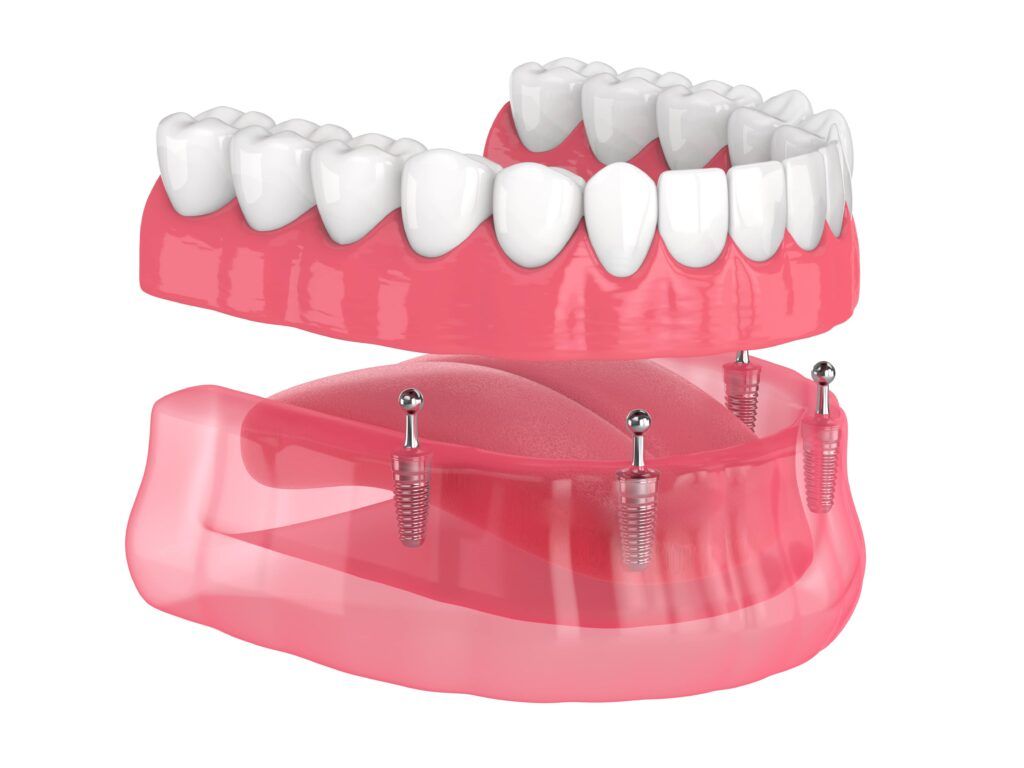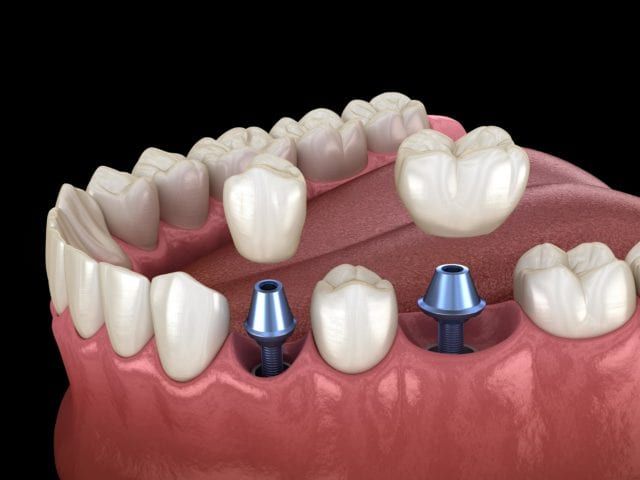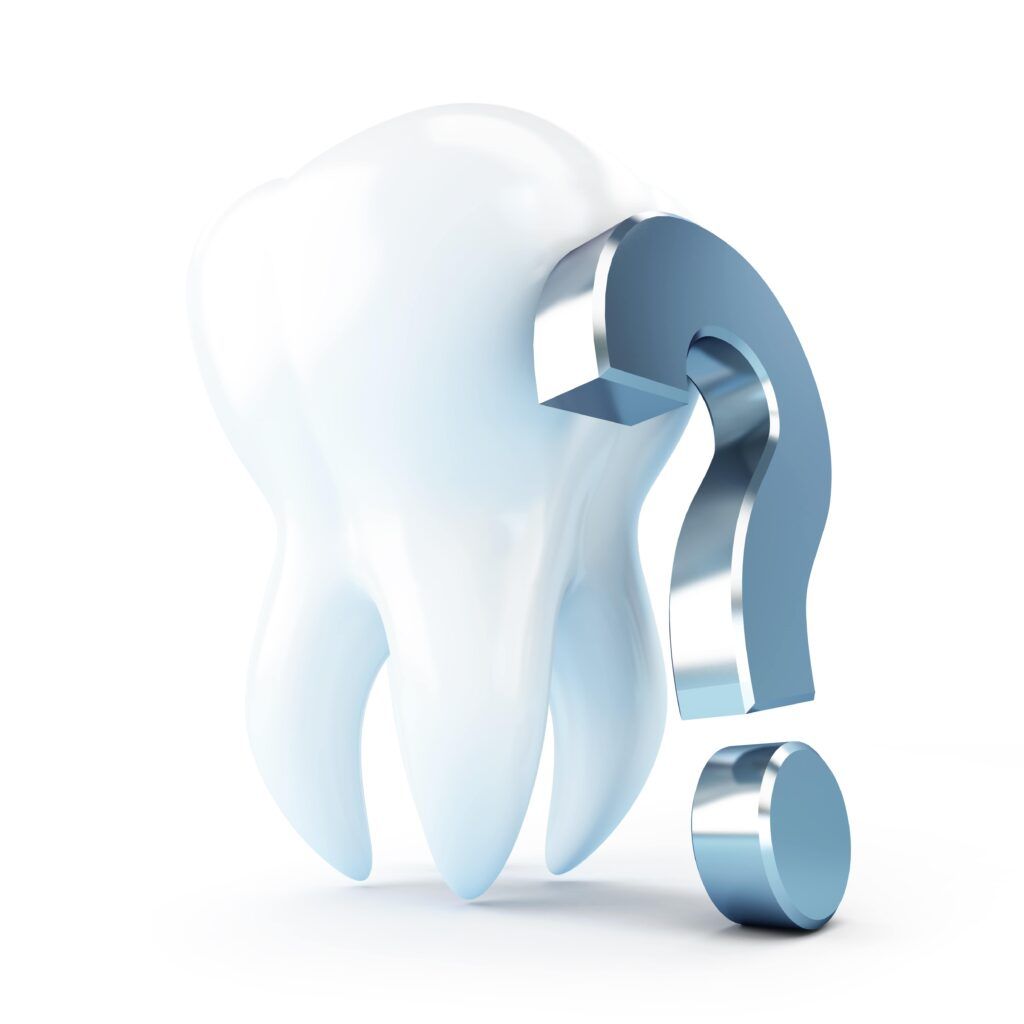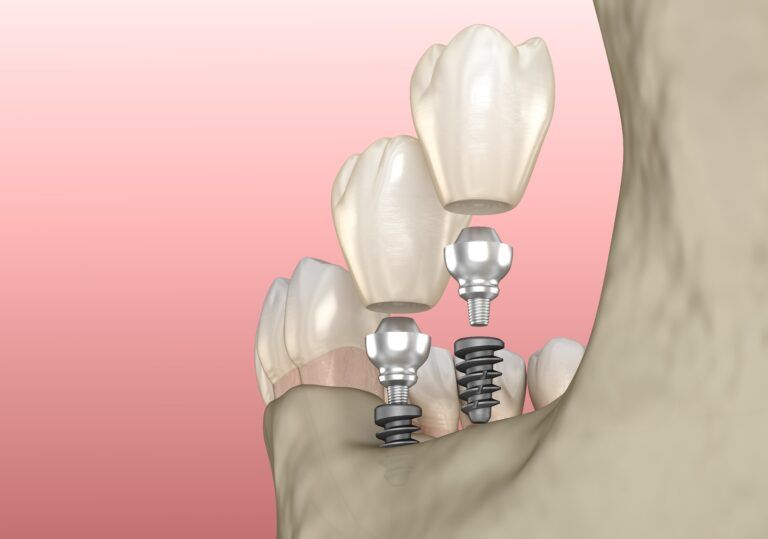Mini dental implants represent a groundbreaking advancement in dental restoration, offering a less invasive and more cost-effective solution compared to traditional dental implants. As a compact and innovative alternative, they have transformed the landscape of implant dentistry, providing patients with limited bone density or those seeking a faster, less painful recovery process, an efficient option. This blog post delves into the world of mini dental implants, exploring their functionality, advantages, and considerations. From the technicalities of their design to the practicalities of their maintenance, we will guide you through everything you need to know about this revolutionary dental solution, helping you make an informed decision on whether they are the right choice for your dental health needs.
In This Blog:
- Mini vs. Traditional Dental Implants
- Advantages of Mini Dental Implants
- Potential Limitations and Considerations
- The Procedure: What to Expect
- FAQs
Mini vs. Traditional Dental Implants
When considering dental implants, it’s crucial to understand the differences between mini and traditional dental implants to make an informed decision. While both serve the same purpose of replacing missing teeth, they differ in size, procedure, and suitability for various dental conditions.
| Feature | Mini Dental Implants | Traditional Dental Implants |
| Size | Smaller in diameter (1.8 to 3.3 mm) | Larger in diameter (3.4 to 5.8 mm) |
| Procedure | Less invasive, often completed in one visit | More invasive, may require multiple visits |
| Bone Requirement | Less bone density needed for placement | Requires sufficient bone density |
| Healing Time | Shorter, faster recovery | Longer healing period |
| Suitability | Ideal for stabilizing dentures, small spaces | Suitable for replacing any missing teeth |
| Cost | Generally less expensive | More expensive due to the complexity |
| Durability | Effective for specific cases, less long-lasting | Designed for long-term durability |
| Procedure Time | Can be installed in a single session | Requires several months for complete process |
| Ideal Candidates | Patients with less bone density, need quick fix | Patients requiring permanent tooth replacement |
| Longevity | Good but less than traditional implants | Proven long-term success and stability |
Size and Structure
Mini dental implants are significantly smaller in diameter than traditional implants. Typically, mini implants are about 1.8 to 3.3 mm in diameter, whereas traditional implants range from 3.4 to 5.8 mm. This size difference makes mini implants less invasive and easier to place, often requiring only a minor surgical procedure.
Surgical Procedure
The procedure for mini dental implants is less invasive, often completed in a single visit, and requires less bone structure for placement. This aspect makes them an ideal choice for patients with bone loss who may not qualify for traditional implants without undergoing bone grafting. On the other hand, traditional implants require a more extensive surgical procedure, with a longer healing time and sometimes the need for bone grafting to ensure sufficient bone density to support the implant.
Suitability and Functionality
Mini dental implants are best suited for stabilizing dentures or replacing smaller teeth where space is limited. They are particularly beneficial for patients looking for a quick solution to improve denture stability. Traditional dental implants, however, are considered the gold standard for tooth replacement due to their durability and the comprehensive range of dental restorations they can support, from single crowns to full-arch bridges.
Pros and Cons
The main advantages of mini dental implants include their minimally invasive nature, lower cost, and quicker recovery time. They are an excellent option for patients who are not candidates for conventional implants due to insufficient bone density or those seeking a less complex dental procedure.
However, mini implants may not be as durable as traditional implants in the long term and are typically used in specific cases rather than as a universal solution for tooth loss. Traditional dental implants, while more invasive and expensive, offer a longer-lasting solution with a proven track record of success and the ability to support various dental prosthetics.
Advantages of Mini Dental Implants
Mini dental implants offer several advantages, making them a popular choice for certain dental patients:
Minimally Invasive Procedure:
Mini dental implants require less invasive surgery compared to traditional implants. Due to their small size, the procedure can often be done with less drilling and cutting into the jawbone, which results in reduced trauma and a faster healing process.
Quick Recovery Time:
Patients often experience less discomfort and a quicker recovery period after the placement of mini dental implants. In many cases, the procedure can be completed in a single visit, allowing for an almost immediate return to daily activities.
No Need for Bone Grafting:
Because mini dental implants are smaller, they often do not require bone grafting. This is particularly advantageous for patients who have experienced bone loss and are not candidates for traditional implants without undergoing significant and costly bone augmentation procedures.
Cost-Effective:
Mini dental implants are generally less expensive than traditional implants. The lower cost is due to the simplified and faster procedure, reduced need for additional surgeries like bone grafting, and less expensive materials.
Immediate Functionality:
Often, mini dental implants can be loaded immediately, meaning they can support a crown, bridge, or denture right after placement. This provides an instant improvement in chewing ability and overall oral function.

Improved Denture Stability:
Mini dental implants are particularly effective for stabilizing dentures. Patients with loose or ill-fitting dentures can benefit significantly from the added stability, which improves comfort, chewing efficiency, and speech.
Preservation of Jawbone and Facial Structure:
Like traditional implants, mini dental implants stimulate the jawbone, helping to prevent further bone loss and maintain the facial structure. This stimulation is crucial for long-term oral health and aesthetic appearance.
High Success Rate:
Mini dental implants have a high success rate, providing a reliable and effective solution for tooth replacement and denture stabilization.
Less Dietary Restrictions:
With the increased stability and support provided by mini dental implants, patients can enjoy a wider variety of foods, leading to better nutrition and quality of life.
These advantages make mini dental implants a suitable option for many patients, particularly those looking for a less invasive, more affordable, and quicker solution for replacing missing teeth or stabilizing dentures.
Potential Limitations and Considerations of Mini Dental Implants
While mini dental implants offer numerous benefits, there are also potential limitations and considerations to be aware of:
Longevity and Durability:
Mini dental implants may not have the same long-term durability as traditional implants. Due to their smaller size, they might be more prone to wear and tear or mechanical failure over time, especially if subjected to heavy biting forces.
Limited Application:
Mini implants are typically used for specific situations, such as stabilizing dentures or replacing small teeth in narrow spaces. They may not be suitable for all dental restoration needs, particularly for replacing larger teeth or where a stronger bite force is required.
Bone Structure Impact:
While mini implants require less bone for placement, they still need enough bone height and thickness to ensure stability. In cases of severe bone loss, even mini implants might not be viable without some form of bone augmentation.
Overloading Risk:
There is a risk of overloading mini dental implants if they are used inappropriately, such as for supporting larger restorations that are better suited for traditional implants. Overloading can lead to implant failure or bone loss around the implant.
Aesthetic Limitations:
For front teeth or areas with high aesthetic concern, mini dental implants might not always provide the most natural-looking result, especially if the surrounding area has significant bone or gum tissue loss.
Not a One-Size-Fits-All Solution:
Although mini implants can be an excellent solution for many patients, they are not universally suitable. Dental professionals must carefully assess each patient’s specific oral health condition, bone density, and restoration needs.
Maintenance and Care:
Like traditional implants, mini dental implants require meticulous oral hygiene and regular dental check-ups to maintain their health and functionality. Neglecting proper care can lead to complications such as peri-implantitis, a condition similar to gum disease that affects the tissues around the implant.
Revision or Replacement Difficulty:
If a mini dental implant fails or needs replacement, the procedure can be complicated. The existing bone might be further compromised, making subsequent implantation more challenging.
Professional Expertise:
The success of mini dental implant procedures heavily relies on the dentist’s expertise and experience. It’s crucial to choose a dental professional who is skilled in implant dentistry to minimize risks and ensure the best outcomes.
While mini dental implants are a beneficial option for many patients, it’s important to consider these potential limitations and discuss them thoroughly with a dental professional to determine the most appropriate treatment plan for individual dental needs and conditions.
The Procedure for Mini Dental Implants
The process of getting mini dental implants involves several steps, from initial consultation to post-operative care. Here’s what patients can typically expect:
Initial Consultation and Planning
- Assessment: The procedure begins with a thorough dental examination, including X-rays or CT scans, to evaluate the patient’s oral health, bone density, and suitability for mini dental implants.
- Treatment Planning: If mini dental implants are deemed suitable, the dentist develops a customized treatment plan. This plan includes the number of implants needed and their optimal placement locations.
Surgical Procedure

- Preparation: The area is prepared and cleaned, and local anesthesia is administered to numb the treatment site. Sedation options may be discussed for patients who experience dental anxiety.
- Implant Placement: A small pilot hole is drilled into the jawbone where each mini implant will be placed. Due to their smaller size, the process is less invasive and causes minimal disturbance to the bone and surrounding tissues.
- Insertion: The mini dental implants are then carefully screwed into the prepared holes. The top part of the implant, which protrudes above the gum line, typically features a ball or square-shaped head that will later be used to attach the dental prosthesis.
- Immediate Loading (if applicable): In many cases, the dental prosthesis (like a denture or crown) can be attached to the implants immediately after placement, offering instant functionality.
Post-operative Care
- Recovery: Post-operative discomfort is typically minimal and can be managed with over-the-counter pain relievers. Patients can usually resume normal activities shortly after the procedure.
- Follow-up: Follow-up visits are scheduled to monitor the healing process and ensure the implants are integrating properly with the bone. These appointments are crucial for assessing the success of the implantation and the stability of the attached prosthesis.
- Oral Hygiene: Proper oral hygiene practices are essential to maintain the health of mini dental implants. Patients are advised on how to clean around the implants and the prosthesis to prevent infection and ensure long-term success.
Long-Term Maintenance
Regular dental check-ups and cleanings are vital to monitor the condition of the implants and address any issues promptly. Patients should maintain good oral hygiene and visit their dentist regularly to ensure the longevity of their mini dental implants.
The procedure for mini dental implants is generally straightforward, less invasive, and can be completed quickly, providing a convenient and effective solution for many patients needing dental restoration.
FAQ: Mini Dental Implants
1. Are mini dental implants as strong as traditional dental implants?
Mini dental implants are strong and durable, especially for their intended uses like stabilizing dentures or replacing smaller teeth. However, due to their smaller size, they may not withstand the same level of biting force as traditional dental implants. Traditional implants are generally thicker and anchored more deeply into the jawbone, making them better suited for replacing larger teeth and supporting higher bite forces. The choice between mini and traditional implants should be based on specific dental needs, bone availability, and the recommendation of a dental professional.

2. How long do mini dental implants last?
The longevity of mini dental implants can vary depending on several factors, including the patient’s oral hygiene, the quality of the bone into which they are implanted, and the force exerted on the implant. With proper care and maintenance, mini dental implants can last many years. On average, they can be expected to function well for 5 to 10 years, and in some cases, even longer. Regular dental check-ups and good oral hygiene are crucial to extending their lifespan and ensuring their success.
3. What is the success rate of mini dental implants?
The success rate of mini dental implants is high, with studies showing rates comparable to traditional dental implants in suitable candidates. Success rates typically exceed 90%, provided that the implants are correctly placed, and patients adhere to recommended oral hygiene practices and regular dental check-ups. The key to a successful outcome is proper patient selection, skilled implant placement, and effective post-operative care.
Conclusion
In conclusion, mini dental implants offer a versatile and cost-effective solution for those seeking dental restoration, particularly when traditional implants are not viable due to bone density issues or when a less invasive option is preferred. Their smaller size, coupled with the less complex surgical procedure, makes them an attractive choice for stabilizing dentures and replacing smaller teeth. While they may not be suitable for every dental situation, their benefits of quick recovery, affordability, and immediate functionality make them an excellent option for many patients. As with any dental procedure, a thorough evaluation by a qualified dental professional is essential to determine the best treatment plan, ensuring that the patient receives the most appropriate and effective dental care for their specific needs.

